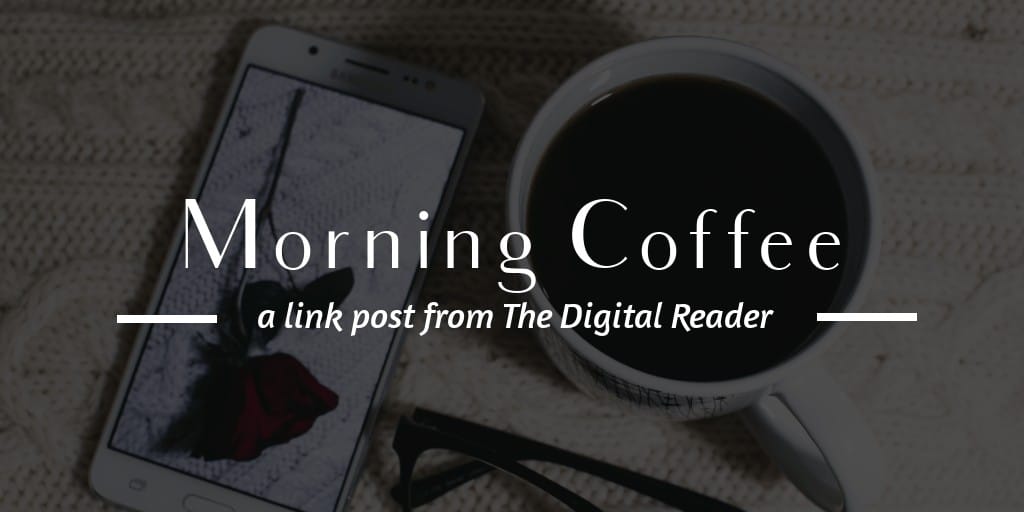Kindle Unlimited Funding Jumps in May 2016 as the Payout Takes a Slight Dip


At the same time, the per-page royalty dipped last month. In the US and much of Europe it dropped around 4%, but not in Germany. The rate also dropped in other markets,.
- US: $0.0047 (USD)
- UK: £0.00297 (GBP)
- Germany: €0.00333 (EUR)
- France, Spain, Italy, Netherlands: €0.00465 (EUR)
- Brazil: R$ 0.0108 (BRL)
- Mexico: $0.7801 (MXP)
- Japan, Australia, Canada, India: no data
P.S. Here’s a list of the monthly funding pools. It does not include the bonuses paid out each month.
- May 2014: $1.2 million
- June 2014: $1.2 million
- July 2014: $2.5 million (Kindle Unlimited launches early in the month)
- August 2014: $4.7 million
- September 2014: $5 million
- October 2014: $5.5 million
- November 2014: $6.5 million
- December 2014: $7.25 million
- January 2015 – $8.5 million
- February 2015: $8 million
- March 2015: $9.3 million
- April 2015: $9.8 million
- May 2015: $10.8 million
- June 2015: $11.3 million
- July 2015: $11.5 million
- August 2015: $11.8 million
- September 2015: $12 million
- October 2015: $12.4 million
- November 2015: $12.7 million
- December 2015: $13.5 million
- January 2016: $15 million
- February 2016: $14 million
- March 2016: $14.9 million
- April 2016: $14.9 million
- May 2016: 15.3 Million

Comments
author/reader June 16, 2016 um 9:03 pm
The idea that the length of a book determines its market value is both irrational and ridiculous. Its an Amazon solution to a subscription service problem but its not a solution that benefits either authors or the reading public. At the present time it seems ordinary sales of many kinds of books are drying up as more and more readers get KU subscriptions. KU is a lending library and in the past for printed books every commercial lending library charged a flat fee per day for borrowed books no matter what the length of the book. Never mind a monthly subscription fee read-as-much-as-you-like-for-the-same-fee plan. It may work for Amazon but it does not work for authors. Amazon ought to experiment with a hybrid plan that does not cripple and discourage serious authors. The flat subscriber fee subscription service needs to be modified. Finally, if one wants to argue that the value of a book is what the masses want to pay for it, then a good deal of modern literature and nonfiction should never have been published because they never sold many copies. Joyce’s Ulysses sold a few hundred copies when first published, as did the work of many other serious writers. It’s the first publication that brings the work to the attention of the masses and the educated public, and authors should not have to starve for that to happen.
Nate Hoffelder June 16, 2016 um 9:11 pm
Tell that to the publishing industry, which has been forcing books into certain lengths for decades before Amazon came along.
author/reader June 16, 2016 um 9:52 pm
Yes. But I’m not telling anything to the publishing industry because the problem with dinosaurs is not only that they are on their way to extinction but also that they have small brains with a consequence reduced cognitive capacity.
MKS June 16, 2016 um 10:30 pm
Length matters in genre fiction read for entertainment and nonfiction read for information content. Customers make value judgements in terms of quantity of content. For the artistic reading experience of poetry and great literature length shouldnt be rewarded, but my guess there isnt much poetry or artsy enriching novels in the KU program anyway.
author/reader June 16, 2016 um 10:56 pm
"there isnt much poetry or artsy enriching novels in the KU program anyway"
Maybe not true, but if it is so, maybe it’s because the payback is too small.
Fjtorres June 17, 2016 um 7:56 am
It isn’t too low for the authors of the million or so titles in KU.
Everybody has different expectations, some realistic, some less so.
It’s all a business and everybody is entitled to run theirs as they see fit and get to live with the consequences of their choices.
But readers have choices too.
And their choices are the ones that stick, when all is said and done.
author/reader June 17, 2016 um 10:33 am
fjtorres
You state the guiding principles of mass market print publishing–money first, culture second. The digital revolution ought to and can provide for both at the same time, since it costs Amazon almost nothing to encourage quality–encouragement that should be in their self interest. It’s interesting that many millions of people use Gutenberg and Gutenberg’s offerings are mostly culture and hardly any mass market except maybe for magazine SF. In sum, there should be a way for Amazon to make profit from quality and not just from junk geared to the mass IQ of 100 or less.
Fjtorres June 17, 2016 um 12:12 pm
Sure, and it does provide for both.
But unless the author is giving the stuff away via creative commons (and more power to them) off their own website, book distribution is a business. And it is a business whether the author goes tradpub or indie.
The moment you charge for the creation you are engaging in commerce and the rules of commerce apply. And in the US market, with 60 years on consumer activism, that means readers rule.
No special snowflakes in the real world and calling "culture" is as useful as calling "dibs".
MKS June 17, 2016 um 12:48 pm
The digital revolution has made it possible for everybody with access to a phone and an internet connection to publish all the great literature they want for free. Not only that, but via free search engines its discoverable to anybody who wants to read it. The digital revolution also allows near anybody who wants to pay for it to contact the poster and do so. It doesnt mean that anybody is entitled to their choice of a specific platform and it doesnt mean those people who dont write saleable work are entitled to be promoted on sites funded by saleable work.
author/reader June 17, 2016 um 1:16 pm
It’s nice to see free (rigged) market philistines come out. There’s a reason why this large industrialized country does such a poor job educating its children compared to other large industrialized countries. The "free" market has turned this country into a nation of near morons, witness current American politcs, which, as HL Mencken said, is a circus run from the monkey cage. If commerce is not tempered by support of the arts and humanities, the consequence is a civilization on its way to the grave. Anyway, good luck to the children, already handicapped in math and science. As for the arts and humanities, there’s no money in it in a philistine society, so who cares?
Kindle Unlimited Payout, Funding Jumps in June 2016 | The Digital Reader July 17, 2016 um 7:27 am
[…] in June 2016, to $15.4 million. That represents a slight but noticeable increase of $100k from May 2016, and a new peak for the funding […]